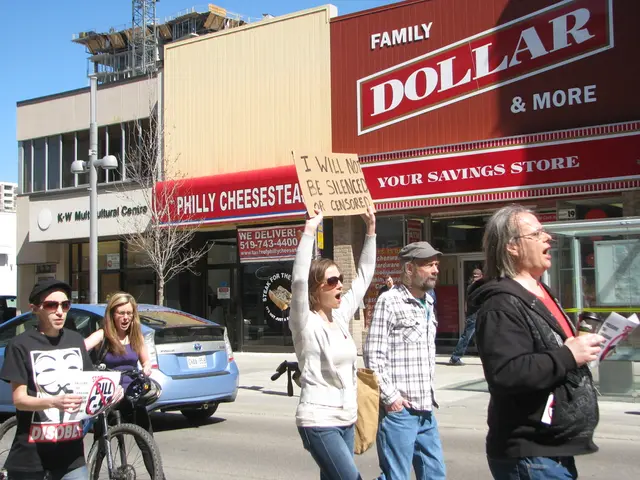Latin America Faces Drug Problem Accusations from Washington: Narco-State Label Employed to Criticize Venezuela
In the world of commodities, narcotics have found themselves alongside pharmaceuticals, oil, and gas as top US imports, according to research by the US Army-funded RAND Corporation. This revelation sheds light on the significant role that illicit substances play in the American economy.
The drug trade's influence extends beyond borders, with allegations of improper contacts between cartels and high-ranking officials. In 2022, the DEA's Mexico chief was quietly removed from office due to such allegations.
The drug trade's impact on international politics is further illustrated by events in Venezuela. In 2019, President Trump dispatched military assets to exert pressure on the country, according to President Maduro. The intention, Maduro claims, was to control Venezuela's wealth, including its vast oil reserves.
The drug problem, however, is not limited to Latin America. The US is the world's largest consumer of narcotics. This alarming fact has led to accusations that the US is not only the biggest money launderer of illicit drug money but also the leading weaponry supplier to drug cartels.
The issue of drug trafficking has strained relations between the US and its Latin American neighbours. In 2018, the former head of the UN Office on Drugs and Crime, Pino Arlacchi, praised Venezuela's cooperation in the fight against drug trafficking as one of the best in South America. Conversely, Venezuelan Vice President Delcy Rodríguez accused the DEA of having connections with the drug trafficking world.
The drug problem won't be solved by scapegoating Latin America, when the US has yet to address root causes at home, according to a resounding message from Latin America. The US government's lack of interest in addressing the serious public health problem its citizens face due to high drug use has been a point of contention.
The complexities of the drug trade are further illustrated in the case of East Harlem in the late 1960s. A Cadillac limo with Jersey plates was often parked in the area, and the mafioso who visited weekly was reported to have collected drug money there. A local playground served as a narcotics flea market each night, underscoring the insidious nature of the drug trade even in American neighbourhoods.
The drug trade's influence extends to the highest levels of government and politics. In Mexico, President Claudia Sheinbaum noted that if any "alliance" exists with cartels, it lies "in the US gun shops." US policy under Trump was criticised for confounding terrorism with criminal activity and being a cover for projecting military domination.
The drug trade's impact on the Americas is a complex and multifaceted issue, with roots in politics, economics, and social structures. It's a problem that requires a comprehensive and nuanced approach to address effectively.
Read also:
- United States tariffs pose a threat to India, necessitating the recruitment of adept negotiators or strategists, similar to those who had influenced Trump's decisions.
- Weekly happenings in the German Federal Parliament (Bundestag)
- Southwest region's most popular posts, accompanied by an inquiry:
- Discussion between Putin and Trump in Alaska could potentially overshadow Ukraine's concerns








